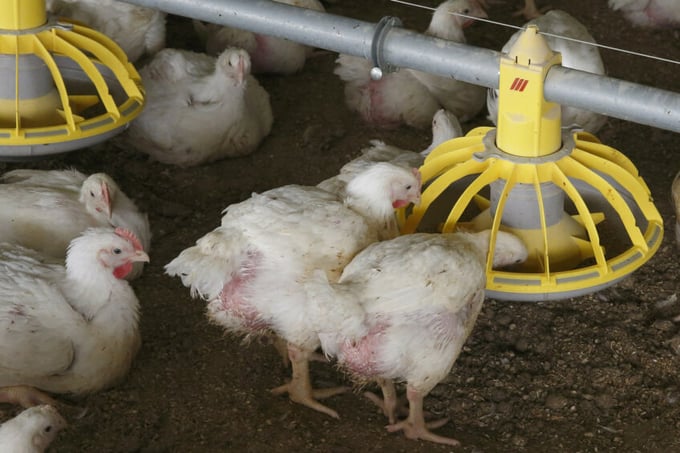November 14, 2025 | 19:31 GMT +7
November 14, 2025 | 19:31 GMT +7
Hotline: 0913.378.918
November 14, 2025 | 19:31 GMT +7
Hotline: 0913.378.918

So far, disease approach has often been relatively ad hoc in France. Photo: Hans Prinsen.
The plan was put forward by Annie Genevard, France’s minister of agriculture, food sovereignty and forestry. In recent years, the country has faced various viral outbreaks in poultry, cattle and sheep, and geographically speaking, African Swine Fever (ASF) is just around the corner.
Contracts with major livestock unions
The minister’s idea is to arrange contracts with the major livestock unions to agree on who takes care of what, who pays what and when and who does the actual work in the field in case of a disease outbreak. Important elements are a strengthening of farm surveillance and biosecurity, the organisation of preventive vaccination as well as the evaluation of new innovative solutions.
“By fixing those steps together in advance, the country as a whole can fight current epidemics more efficiently and rapidly, but also prevent new threats,” she said, adding, “I know I can count on all players involved to construct an ambitious and resilient animal health system together. The epidemics don’t know borders; we have to build an innovative French system and at the same time extend this strategic approach to the whole of the European Union.”
Animal disease approach a bit ad hoc
So far, disease approach has often been relatively ad hoc in France. Often, as soon as a new disease appears, the authorities first tend to observe the situation and then decide to order large amounts of vaccines for a vaccination campaign. Questions as to who has to carry out the vaccinations and how it will be organised are often left unanswered. As a result, fighting disease often costs hundreds of millions of euros.
Genevard said, “We have to engage collectively in defining the sanitary organisation of tomorrow, adjusted to the new risks our livestock is exposed to, against the background of climate change and intensification of worldwide trade.”
She continued to say, “2025 could well be a year of unprecedented perils, with a prolongation of the crises we’ve seen in 2024 and the emergence of new diseases which are already present in neighbouring countries, like African Swine Fever in Germany, or which could come to our part of the world because of climate change.”
Major exporters of cheese, pork and chicken
France is one of the major exporters of both livestock and animal products like cheese, yoghurts, pork, beef and chicken and strives to maintain that position.
In 2024 alone, France suffered outbreaks of epizootic haemorrhagic disease (EHD) in the south in cattle and sheep, bluetongue serotype 3 in the north (mostly affecting sheep), and avian influenza has been a threat that has been around for a number of years as well.
(PW)

(VAN) Water resource management in Viet Nam is undergoing a significant transformation, moving from administrative control to modern, digitized, and sustainable governance. This shift is anchored by technology, data, and social participation.
/2025/11/12/3622-0-123021_955.jpg)
(VAN) The Prime Minister has directed the Ministry of Agriculture and Environment to coordinate with the Ministry of National Defense to immediately implement the Inter-sectoral Coordination Regulation on Combating IUU Fishing.
/2025/11/12/1222-3-160952_13.jpg)
(VAN) Solid science, advanced technology, and a synchronized, transparent data system are the three pillars for future integrated ocean management.

(VAN) Three strategic breakthroughs including institutions, investment, and technology, are set to usher the environmental sector into a new phase, serving as the foundation for building modern environmental governance.

(VAN) The issuance of Directive 42-CT/TW by the Secretariat has marked a significant shift in Vietnam's disaster response mindset, moving clearly from passive response to proactive prevention.

(VAN) In the future, the geology and mineral sector will not be limited to subsurface exploration but will move toward mastering geological knowledge to serve national development.
/2025/11/10/3904-3-203233_564.jpg)
(VAN) Doing research was previously extremely hard work. Leaders and staff had to wade into the fields to select each rice or maize plant. However, that process made studies highly practical.